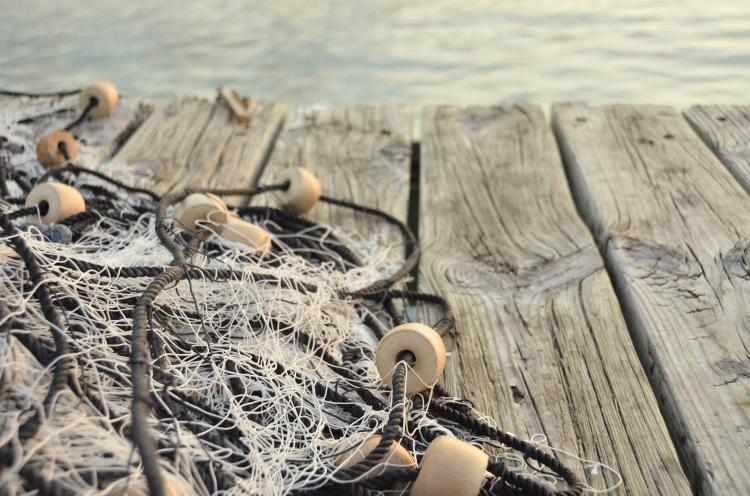WWF/TRAFFIC Pacific Shark Heritage Programme
WWF
#SDGAction40087
Description
To develop and deliver a suite of workable and replicable shark assessment methodologies, WWF and TRAFFIC will have to work in partnership with a number of organisations to ensure data generated is scientifically robust, replicable in the field and contributes towards sustainable shark management strategies. The main action for the project is to develop the Shark Assessment Tookit, and the activities and outputs are outlined below:Activities:WWF, TRAFFIC & partners will develop a draft set of methodologies to be included within the Shark Assessment Toolkit. These methodologies will draw on current practices developed within the WWF/TRAFFIC network, from cutting edge research techniques and from wider data acquisition, and will include assessments on shark and ray populations and critical habitats.Trialling of methodologies within Pacific Island Countries & Territories will continue throughout the life of the projectThe development of the shark & ray tourism best practice guidelines will include partnerships with local dive operators as well as tourism officials & ministries:Activities:Completion of case studies outlining current shark/ray encountersProduction of report to steering group & technical committeeDevelopment of best practice guidelines
An MoU will be developed between WWF/TRAFFIC and regional research organisations which will enable sharing of expertise throughout the Pacific region.WWF will liaise with relevant government departments to ensure any lack of capacity issues will be addressed.
WWF and TRAFFIC will lead the coordination and development of the programme, leading a technical advisory panel to develop shark and ray population and habitat assessments methodologies. These methodologies will assist Small Islands & Developing States meet requirements to develop a National Plan of Action for sharks, as recommended by the Food & Agriculture Organisation.Quarterly meetings of the steering committee will be held during the lifetime of the partnership, with ongoing discussions with governments to develop National Plans of Action.Research efforts will be conducted within academic institutions within the region, with all work coordinated by WWF.
SDGS & Targets
Goal 14
Conserve and sustainably use the oceans, seas and marine resources for sustainable development
14.1
By 2025, prevent and significantly reduce marine pollution of all kinds, in particular from land-based activities, including marine debris and nutrient pollution
14.1.1
(a) Index of coastal eutrophication; and (b) plastic debris density
14.2
By 2020, sustainably manage and protect marine and coastal ecosystems to avoid significant adverse impacts, including by strengthening their resilience, and take action for their restoration in order to achieve healthy and productive oceans
14.2.1
Number of countries using ecosystem-based approaches to managing marine areas
14.3
Minimize and address the impacts of ocean acidification, including through enhanced scientific cooperation at all levels
14.3.1
14.4
By 2020, effectively regulate harvesting and end overfishing, illegal, unreported and unregulated fishing and destructive fishing practices and implement science-based management plans, in order to restore fish stocks in the shortest time feasible, at least to levels that can produce maximum sustainable yield as determined by their biological characteristics
14.4.1
14.5
By 2020, conserve at least 10 per cent of coastal and marine areas, consistent with national and international law and based on the best available scientific information
14.5.1
14.6
By 2020, prohibit certain forms of fisheries subsidies which contribute to overcapacity and overfishing, eliminate subsidies that contribute to illegal, unreported and unregulated fishing and refrain from introducing new such subsidies, recognizing that appropriate and effective special and differential treatment for developing and least developed countries should be an integral part of the World Trade Organization fisheries subsidies negotiation
14.6.1
Degree of implementation of international instruments aiming to combat illegal, unreported and unregulated fishing
14.7
By 2030, increase the economic benefits to Small Island developing States and least developed countries from the sustainable use of marine resources, including through sustainable management of fisheries, aquaculture and tourism
14.7.1
Sustainable fisheries as a proportion of GDP in small island developing States, least developed countries and all countries
14.a
Increase scientific knowledge, develop research capacity and transfer marine technology, taking into account the Intergovernmental Oceanographic Commission Criteria and Guidelines on the Transfer of Marine Technology, in order to improve ocean health and to enhance the contribution of marine biodiversity to the development of developing countries, in particular small island developing States and least developed countries
14.a.1
14.b
Provide access for small-scale artisanal fishers to marine resources and markets
14.b.1
Degree of application of a legal/regulatory/policy/institutional framework which recognizes and protects access rights for small‐scale fisheries
14.c
Enhance the conservation and sustainable use of oceans and their resources by implementing international law as reflected in United Nations Convention on the Law of the Sea, which provides the legal framework for the conservation and sustainable use of oceans and their resources, as recalled in paragraph 158 of "The future we want"
14.c.1
Number of countries making progress in ratifying, accepting and implementing through legal, policy and institutional frameworks, ocean-related instruments that implement international law, as reflected in the United Nations Convention on the Law of the Sea, for the conservation and sustainable use of the oceans and their resources
SDG 14 targets covered
Deliverables & Timeline
Resources mobilized
Partnership Progress

Feedback
Action Network

Timeline
Entity
SDGs
Region
- Asia and Pacific
More information
Countries
Contact Information
Ian Campbell, WWF Pacific Shark Heritage Programme Manager

